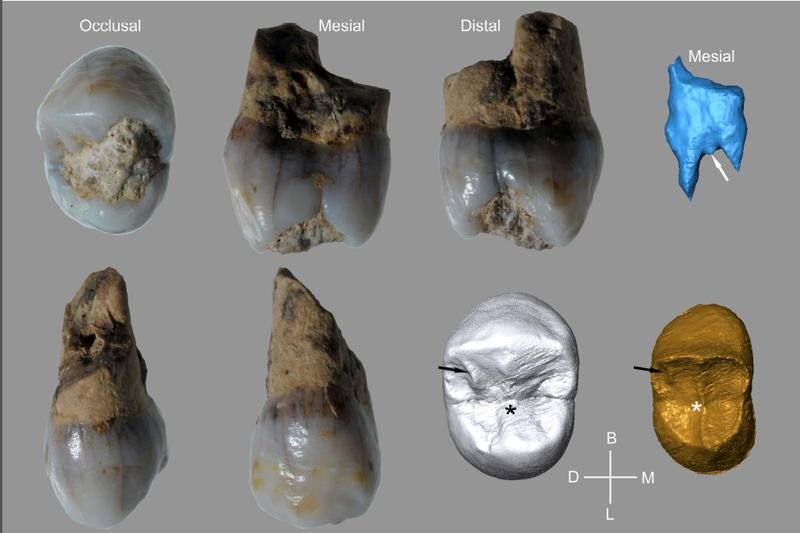120,000-Year-Old Neanderthal Teeth Discovered in Catalonia
A remarkable find sheds light on Neanderthal life across millennia at the Arbreda de Serinyà cave.
Neanderthal Discovery in Arbreda Cave
In the Arbreda de Serinyà cave near Banyoles, Catalonia, archaeologists uncovered six Neanderthal teeth, some dating back over 120,000 years. This discovery offers a rare glimpse into the lives of Homo neanderthalensis across distinct periods, enriching our understanding of their evolutionary journey and interactions with their environment.

The teeth, meticulously analyzed, include specimens from children, a young individual, and an adult. Two of these teeth are dated to at least 120,000 years ago, while another is estimated to be between 44,000 and 71,000 years old.
Significant Findings
The dental remains comprise a right mandibular molar baby tooth, another right mandibular molar, and a right maxillary bicuspid. These specimens suggest a dynamic presence of Neanderthals at the Arbreda site over tens of thousands of years.
"The discovery is very significant as it provides more information about Neanderthals in Arbreda at different points in time—at least 120,000 years ago, as well as between 71,000 and 44,000 years ago," stated Marina Lozano, a researcher at the Catalan Institute of Human Palaeoecology and Social Evolution (IPHES-CERCA) and professor at Tarragona’s University Rovira i Virgili.
These findings emphasize the enduring relevance of the Arbreda de Serinyà cave, a site long associated with Neanderthal activity, and contribute to the broader understanding of their regional presence.
Collaborative Research
The groundbreaking study was led by IPHES-CERCA in collaboration with the University Rovira i Virgili, the Catalan Cultural Heritage Research Institute, the University of Girona Institute of History Research, the University of Bordeaux, and Catalonia’s International University.
The research team employed advanced dating techniques and comparative morphology to assign the teeth to Homo neanderthalensis. Their findings, now published in the American Journal of Biological Anthropology1, highlight the importance of Arbreda as a site of continuous archaeological significance.
Expanding Knowledge of Neanderthals
The discovery of Neanderthal remains spanning such a broad temporal range sheds light on their adaptability and persistence in diverse ecological conditions. It also raises questions about their social structures, dietary patterns, and eventual interactions with anatomically modern humans.
By examining Neanderthal remains from Arbreda, researchers hope to unlock further insights into their daily lives, survival strategies, and cultural expressions.
"This site continues to yield invaluable data, deepening our understanding of Neanderthal presence in the Iberian Peninsula and their evolutionary timeline," Lozano remarked.
Looking Ahead
The Arbreda de Serinyà cave promises to remain a cornerstone for studying Neanderthal behavior and biology. Future excavations and analyses are expected to reveal even more about these ancient relatives of modern humans.
Lozano, M., Soler, J., López-Onaindia, D., Solés, A., Julià, R., Ceperuelo, D., Lorenzo, C., & Soler, N. (2024). Middle Pleistocene teeth from Arbreda Cave (Serinyà, northeastern Iberian Peninsula). American Journal of Biological Anthropology. https://doi.org/10.1002/ajpa.25037


